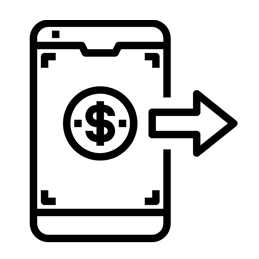Currency Exchange in Ghana: Tips for Managing Your Money
When visiting Ghana, it’s important to have a good understanding of currency exchange to manage your money effectively. Here are some useful tips to help you navigate the currency exchange process and make the most of your financial transactions in Ghana:
-
Know the Official Currency: The official currency of Ghana is the Ghanaian Cedi (GHS). Familiarize yourself with the various denominations of Ghanaian Cedi banknotes and coins to easily identify and handle them during transactions.
-
Exchange Currency at Authorized Locations: Use authorized currency exchange bureaus, banks, or reputable hotels for exchanging your foreign currency to Ghanaian Cedis. These establishments typically offer competitive exchange rates and provide a secure and reliable service.
-
Compare Exchange Rates: Before exchanging your money, compare the exchange rates offered by different currency exchange providers. This allows you to get the best possible rate and maximize the value of your exchanged currency.
-
Watch Out for Hidden Fees: Be mindful of any additional fees or commissions charged for currency exchange. Some providers may have hidden charges, so inquire about the total cost of the transaction before proceeding.
-
Carry Sufficient Cash: While Ghana is gradually becoming more digitally inclined, it is still a predominantly cash-based economy. Ensure you have enough cash on hand for daily expenses, especially when visiting remote areas where card payments may not be widely accepted.
-
Consider ATM Withdrawals: ATMs are widely available in major cities and towns in Ghana. Check with your home bank regarding international ATM usage and fees. Withdrawing money from ATMs in local currency can be a convenient way to access funds while minimizing the need for carrying large amounts of cash.
-
Keep Small Denominations: It’s advisable to keep smaller denominations of Ghanaian Cedis for everyday transactions, as some vendors may have limited change for larger notes. This will help you avoid any inconvenience during smaller purchases or when dealing with public transportation.
-
Inform Your Bank: If you plan to use your credit or debit cards in Ghana, inform your bank beforehand to avoid any unexpected card blocks due to international transactions. Additionally, inquire about any foreign transaction fees that may be applicable.
-
Be Cautious with Counterfeit Currency: Familiarize yourself with the security features of Ghanaian Cedi banknotes to identify counterfeit currency. Check the watermark, security thread, and other characteristics to ensure the authenticity of the notes you receive.
-
Keep Records: Maintain a record of your currency exchange transactions, including receipts and conversion rates. This will help you track your expenses and have documentation for any potential currency-related inquiries or discrepancies.
By following these tips, you can effectively manage your money and currency exchange in Ghana, ensuring a smooth and secure financial experience during your stay.
Related Pages:
Send Money
The future of financial transactions and many more all at your fingertips.
Data Protection
RemitM is registered with the Information Commissioner’s Office (ICO), the UK’s independent authority set up to uphold information rights in the public interest.
You can visit the ICO website to learn more about data protection or search the ICO register to view details of Remitm’s registration (Registration Number: ZA526026)
Client Funds
All clients’ funds are held in a dedicated client account separate from RemitM’s funds, in line with our regulatory framework and consistent with good practice.
We earn no interest from holding client funds, as your payments and transfers are not held by us and are remitted to recipients upon receipt.
Online Security
Your data is transmitted in a secure way and all password data is encrypted.



